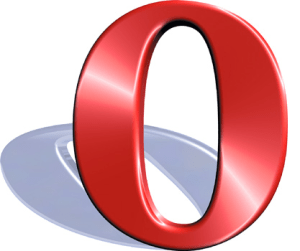Opera is that company that everyone knows about but never really stopped to understand why it is so important. The Norway-based company has always been an ankle-biter, pushing the envelope and calling out the big guys for injustices put upon web developers and Internet surfers. It’s not a sexy position to be in, but Opera has always stood its ground.
 Today, Opera has announced that it will be slowly abandoning its own web-rendering “Turbo” engine in lieu of WebKit, the core development platform used by Chrome and Safari. In a way, today is a sad day. The company might have fallen on its own sword for the greater good, one final time.
Today, Opera has announced that it will be slowly abandoning its own web-rendering “Turbo” engine in lieu of WebKit, the core development platform used by Chrome and Safari. In a way, today is a sad day. The company might have fallen on its own sword for the greater good, one final time.
By never having the pole position in the “browser war,” Opera had the freedom to try new things and make noise about the issues that really matter, including being able to choose your default browser on the desktop. There was a time when Microsoft PC users had no option of which browser to use; Internet Explorer came bundled with the operating system. It was an anti-trust situation — a monopoly if you will. Opera stood up and fought.
How hard has it fought? Here’s a quote from then-CEO of Opera, Jon von Tetzchner, from a 2007 press release which announced Opera’s EU anti-trust complaint against Microsoft:
We are filing this complaint on behalf of all consumers who are tired of having a monopolist make choices for them. In addition to promoting the free choice of individual consumers, we are a champion of open Web standards and cross-platform innovation. We cannot rest until we’ve brought fair and equitable options to consumers worldwide.
This quote is what Opera stands for, and with today’s announcement, a little bit of Opera died. Von Tetzchner left the company in 2011 and the company became decreasingly aggressive in the years after. When von Tetzchner left, he sent a very strong-worded and poignant email describing how things had fallen apart:
It has become clear that The Board, Management and I do not share the same values and we do not have the same opinions on how to keep evolving Opera.
From its own blog post, you can tell how hard this decision was to make, as it was something that was better for users and developers, both of whom Opera cares deeply about:
On the same day as announcing that Opera has 300 million users, we’re also announcing that for all new products Opera will use WebKit as its rendering engine and V8 as its JavaScript engine. It’s built using the open-source Chromium browser as one of its components. Of course, a browser is much more than just a renderer and a JS engine, so this is primarily an “under the hood” change. Consumers will initially notice better site compatibilty, especially with mobile-facing sites – many of which have only been tested in WebKit browsers. The first product will be for Smartphones, which we’ll demonstrate at Mobile World Congress in Barcelona at the end of the month. Opera Desktop and other products will transition later.
Opera has always pushed so hard to make its browser fast, as if to make the web sing for people all over the world, no matter what type of device they’re on. The company has also made tabbed browsing something we’re all used to, by making it faster than everyone else did at the time. By choosing to develop its product on top of WebKit, it is, in essence, giving up. It’s not a stretch to say that Google was able to pass Microsoft with its Chrome browser because all of the work that Opera has put into the space, tirelessly fighting for more cross-platform friendliness and putting an end to a No. 1-by-default situation.
A sentiment of sadness is being shared by developers and former Opera employees:
However, not everyone is crying about the move, considering the fact that if Opera can bring its tenacity to developing for WebKit, everyone wins. Sr. Director of User Interface Engineering at PayPal, Bill Scott, shared these thoughts with us:
I am a big fan of webkit because I am focused on the user’s experience more than I am with being a standards purist. I know that some of my colleagues feel like that we as web developer’s failed because we did not ensure all of our experiences worked on Opera. But what they forget is that this is a marketplace. Companies can only reasonably test on just a few platforms. At the end of the day our users shouldn’t have to pay for our fractured platforms. In no other software area do we have to deal with this many “standards”. Moving closer to a single platform means we can spend more time building experiences rather than showing off our encyclopedic knowledge of browser variants to one another.
Netflix took the approach in late 2009 to settle on webkit as their SDK for all TV experiences which folded nicely into mobile & tablet strategy (by and large this is webkit). I know that the web team there had some browser envy since the TV team could just code for webkit. But being able to settle on webkit really made development move a lot faster.
If we can take the talent of the Opera team and apply it to webkit this will be a big win. And if we could just get IE to switch then we will have arrived at near-nirvana.
The tide has turned today, but we know that without Opera’s work on keeping browsers speedy and open, yet standarized, there wouldn’t be a Firefox or a Chrome or any other alternative browser. The “nirvana” that Scott mentions is a place where developers know exactly what they’re coding for, without worry that they’ll have to refactor everything for a completely different platform. If Microsoft were to shift to WebKit, you can thank Opera. Again.
[Photo credit: Seattle PI]
